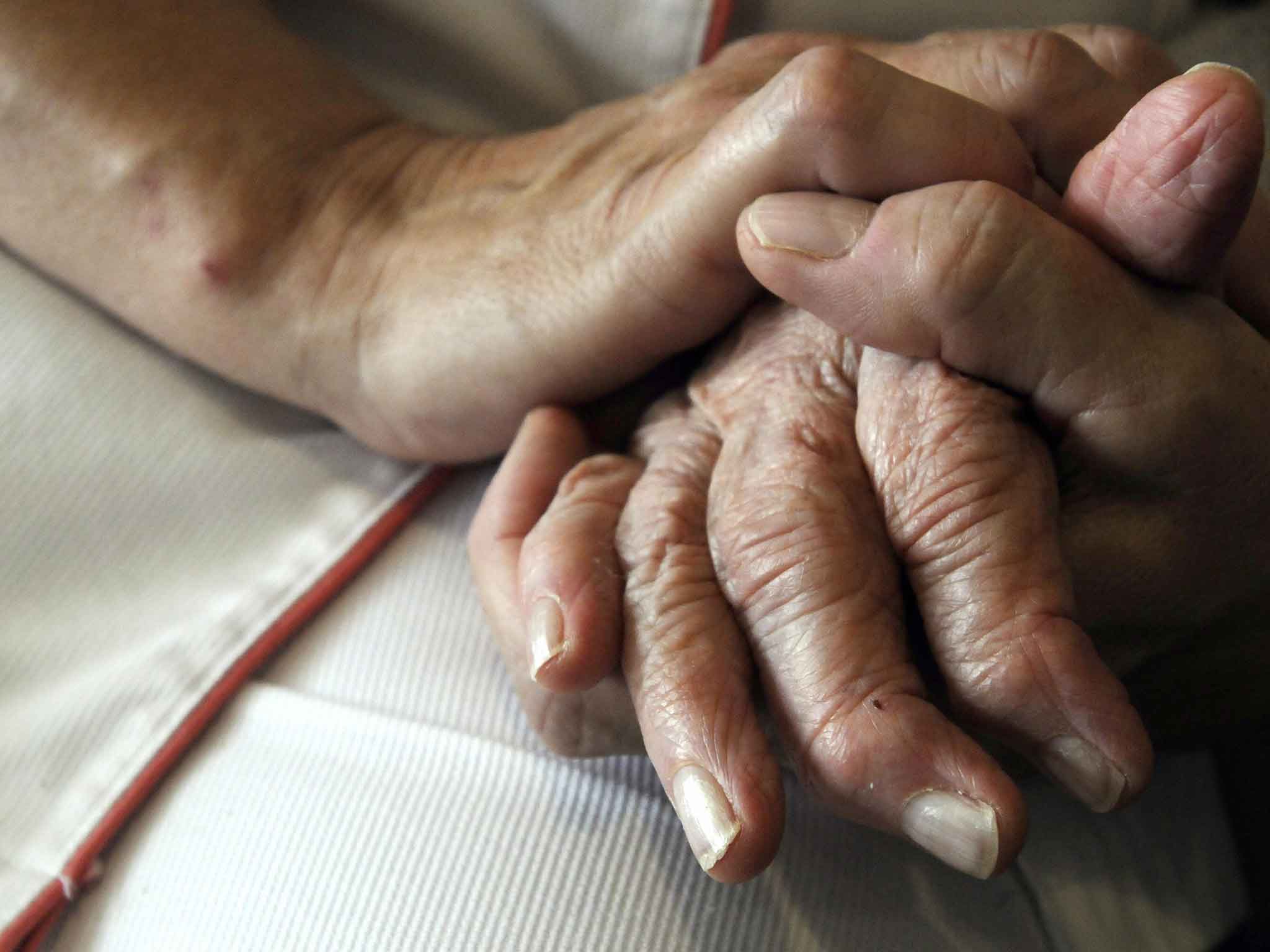Become 'friends': The number of people who can expect to get Alzheimer's can only rise – so why are we still looking away?
At the moment, about 850,000 people in the UK have dementia

The word “dementia”, like cancer, sends a shiver up people’s spines, which is one reason why most of us instinctively shy away from the subject. On the plus side, we no longer stigmatise sufferers as mad and shut them away. Films such as Still Alice and Iris have not only brought home the horrifying indignity of this incurable condition but have reminded us that Alzheimer’s disease can strike anyone, at any age.
But a welcome change in attitude is not taking place as rapidly as it must, given the almost certain rise in the number of people who will get this condition. New analysis from the organisation Alzheimer’s Research claims that as many as one in three Britons born this year will develop a form of dementia. It predicts the double whammy of a crisis in the health system and a crisis in the finances of millions of people if we do not start facing up to this.
One in three sounds a lot; we should rightly regard such worst-case scenarios with caution. Still, a hefty rise in the number of dementia sufferers looks inevitable simply because it is normally – though not always – age related and because the average Briton born today is likely to live years longer than someone born a generation or two ago. Sadly, that also means much more time to get dementia.
At the moment, about 850,000 people in the UK have dementia – the umbrella term for Alzheimer’s and similar conditions. That is about one in 14 people over the age of 65. But the likelihood of getting it rises markedly as people reach their eighties and nineties, so, as the percentage of the population living into their ninth decade rises, an equivalent rise in the number of people with dementia is also on the cards. It may not be one in three but it will surely be several million people as opposed to 850,000.
It is not being alarmist to suggest that we have not nearly got to grips with the consequences of that prospect. One of the downsides about the recent films about Alzheimer’s sufferers is that they focus on wealthy, partnered people whose loving spouses can draw on almost limitless funds to the ease the situation. Unfortunately, most of us who get Alzheimer’s, or another form of dementia, will not end living like Julianne Moore’s character in Still Alice – demented but in comfortable surroundings. We may be alone, on modest savings or none at all and a tiny pension. Then what?
Governments must do more because they set agendas and priorities in health. Dementia groups have a right to question the focus on certain forms of cancer at the apparent expense of diseases like Alzheimer’s. In the US, it is estimated that 10 times more money is invested in cancer resaearch than into reaearch into Alzheimer’s, which may explain the limited progress made into finding drugs that arrest the disease. Here, the former health minister Paul Burstow made the same point in 2013, calling for resources to be brought into line with funding for cancer. The Prime Minister, David Cameron, promised to double the funding for dementia research three years ago. That was a good move but doubling the funding from a low baseline will yield only limited results.
We should not expect the state to do everything. The Dementia Friends scheme, set up in 2013 by the Alzheimer’s Society, is an inspiring idea that has caught on. Almost a million people have become “friends”. However, training people to spot dementia and support sufferers is only part of the solution. The question of who will look after, and pay for the care of, several million people who cannot look after themselves has yet to find an answer.

Join our commenting forum
Join thought-provoking conversations, follow other Independent readers and see their replies